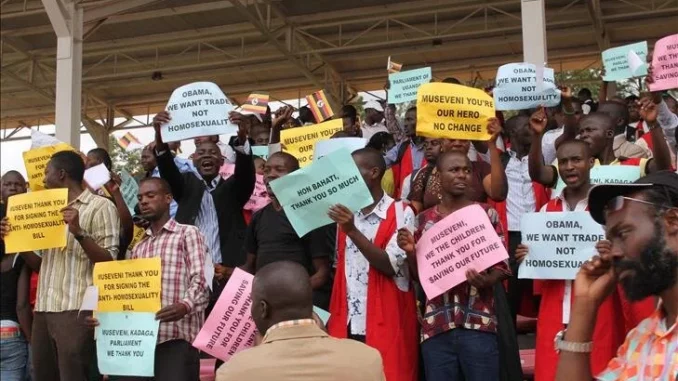
On Wednesday, Uganda’s Constitutional Court upheld a controversial anti-gay law imposing the death penalty for “aggravated homosexuality,” amidst global criticism from human rights advocates. This law, signed by President Yoweri Museveni in May of the previous year, has broad support in Uganda, where homosexuality is often viewed as foreign. The court ruled that the law was constitutionally enacted, emphasizing that homosexuality was already punishable under existing legislation with severe penalties.
The specific law targets ”aggravated homosexuality,” involving minors or HIV-positive individuals, with harsh sentences for convictions. Despite this, the court-mandated non-discrimination in medical access for the LGBTQ+ community highlights Uganda’s severe AIDS crisis history and the critical need for inclusive healthcare.
An activist among the law’s challengers, Andrew Mwenda, plans to appeal to the Supreme Court, viewing the ruling as a setback in the broader struggle against discrimination. The U.N. Commissioner for Human Rights, Volker Turk, criticized the decision, urging for the law’s repeal and highlighting reports of widespread rights violations since its enactment.
The law’s passage has led to international condemnation, including from U.S. President Joe Biden, and prompted the World Bank to suspend new loans to Uganda, stressing the need for projects to adhere to its social standards. Homosexuality remains criminalized in many African countries, reflecting a continent-wide issue of LGBTQ+ rights.
